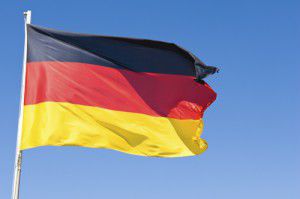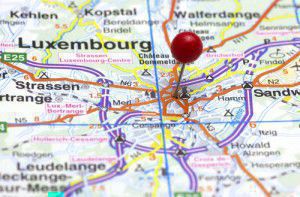Can language ever be gender-neutral?
Recent news that the German Justice Ministry is pushing for the German language to be made more ‘gender neutral’ will probably bring a sigh of relief to us German-learners the world over. Don’t get me wrong, I love German, but years of grappling with genders (a girl is ‘it’, whilst a table is ‘he’ and a bag is ‘she’!? – what’s going on here!?) doesn’t always feel worth it, when I’m constantly asking ‘is it der, die or das App?’ only to be told by native Germans ‘I’m not really sure!’
 For us English speakers, the idea of allocating an arbitrary ‘masculine’, ‘feminine’ or ‘neutral’ to random objects around us just doesn’t feel right, and causes many a problem for learners of all nationalities. Screwing up the gender isn’t going to cause an international incident, but the bad news is that you have to get the gender right to get any other aspect of grammar right as well, so it really is a necessary part of learning the language.
For us English speakers, the idea of allocating an arbitrary ‘masculine’, ‘feminine’ or ‘neutral’ to random objects around us just doesn’t feel right, and causes many a problem for learners of all nationalities. Screwing up the gender isn’t going to cause an international incident, but the bad news is that you have to get the gender right to get any other aspect of grammar right as well, so it really is a necessary part of learning the language.
But maybe not for much longer! The current campaign intends to do away with overtly gendered ways of referring to people and professions. Currently, Germans have the (rather archaic-sounding) convention of referring to all professions, for example, as gender-specific, e.g. der Arzt / die Ärztin (doctor), der Student / die Studentin (student) or der Manager / die Managerin. It is common to see an endless array of forward slashes (‘der/die Bewerber/in’ (applicant) or the bizarre-looking ‘die TeilnehmerInnen’ (participants) as a way of getting around the modern need to incorporate both male and female variants into job ads etc. This is basically just a headache for everyone involved. Yes, we get that the job can be done by men and women! We don’t need a special word for everything that can be done by a woman. Instead, some suggest a gender neutral equivalent, such as ‘das Bundeskanzler’ (Federal Chancellor – i.e. Merkel) instead of the current feminine form (die Bundeskanzlerin) which draws attention to the fact she is a woman, rather than just being the leader of one of the world’s most powerful countries.
This is all hypothetical, and some theorise that the language might do away with all gender articles (der/die/das, ein/eine/ein) and simply refer to everything as ‘das’, or maybe the more commonly used ‘die’. But it certainly would be helpful to anyone trying to get their head around these rather arbitrary distinctions.
It’s not really just German that struggles with these gender distinctions though. Even when writing English there are some tricky situations to get around. Endless use of ‘he/she’ sounds just as awkward as constant ‘der/die’ or putting ‘In’ on the end of everything, but simply using ‘he’ all the time feels like a somewhat unsatisfactory solution. I often resort to writing ‘they’, as the closest to a gender-neutral equivalent that we have, although this can often sound odd, and is technically a plural. Fortunately, although we do have female versions of some professions (e.g. actress, policewoman), mostly you can just say ‘doctor, dentist, teacher’ and no one bugs you to put ‘female’ in front – which actually feels a whole lot more sexist than simply implying that gender has nothing to do with it. Perhaps we could do with a generic word that implies ‘he and/or she’ without needing to be too finicky about it every time. Somehow, though, I don’t see ‘it’ catching on as a way to refer to people! For now, we’re probably stuck with either slightly awkward or slightly sexist – but it’ll be interesting to see if the Germans manage to find a better solution.
Alex
10 reasons to visit… Luxembourg
Having just returned from a short trip to Luxembourg, I thought I’d continue with our ’10 reasons to visit’ series by giving you a few reasons why you should consider a trip to this central European country.
Luxembourg may be small, but it’s certainly worth a visit, and here’s why:
1. Great links with the rest of Europe
Luxembourg is just a short, hour-long flight from London, with several airlines and airports serving Lux airport. Our return flights were only £60 with BA. Or you could easily fly or drive from most big cities in Europe. Luxembourg also uses the Euro, which is convenient for other European visitors.
2. It’s quick and easy to visit France/Germany/Belgium
Ok… so my second reason to visit a place probably shouldn’t be that it’s easy to leave it again, but hear me out! I spent five days with a friend who lives in Luxembourg city, and during that time we hopped on the train over to the border to Trier in Germany and Nancy in France for just 10 euros a time. Luxembourg’s central location and small size means it’s easy to get two or three countries for your money by taking a short drive or train ride to one of the nearby cities, and fit as much as possible into your trip.
3. Linguistic diversity
Of course, my next reason has to be language-related! This small country has THREE official languages: Luxembourgish, which is spoken as a mother tongue by almost all residents; French, which is commonly used in restaurants, shops and cafes, and German which is frequently heard in the media. English is also widely spoken. So while you’re there, you can easily practise your French or German, as well as maybe picking up a few phrases of the local language. It was definitely a good opportunity for me to use a bit of French when ordering food and drinks. (By the way, EuroTalk offer all three official languages.)
4. Food and drink
Luxembourgish cuisine is very similar to German/Austrian, with plenty of meat and potato-based dishes. I came across plenty of my favourite German dishes such as Kaesspaetzle (an egg based dish which is a little like pasta or dumplings, with plenty of cheese!), Schnitzel (breaded pork fillets) and Rosti (Swiss-style potato cakes), not to mention Apfelstrudel and cheap beer. But if heavier dishes are not to your taste, there are plenty of French and Italian influenced restaurants in the city as well.
5. Amazing architecture
Luxembourg City used to be a fortress city which was completely surrounded by high stone walls. Those walls are still there, and you can climb to the top and walk around them for an incredible view of the city. The architecture is also beautiful, with many typical cone-shaped roofs and an architectural style that mixes French and German traditions. Planning and building laws in Luxembourg are also much looser than in many other European countries, meaning almost all the houses are built in different styles and colours.
6. Museums and culture
We visited the Luxembourg City History Museum, which is only 3 euro entry, but worth every cent. The museum covers every aspect of Luxembourgish life, from exhibits on the city’s architecture, with models of the city during different periods of its existence, to an entire floor dedicated to shopping and consumer culture, a basement level which is cut into the rock that the city is built on, and loads of fascinating information about the city’s occupation by the Nazis during the WW2 era. It also has great views over the city, especially from the glass lift. The museum is a proper maze and you can get lost in there for hours and find out about all sorts of aspects of Luxembourg City.
7. Landscape and cityscape
Interestingly, the city is built around a huge canyon (for want of a better word!). You must therefore either take one of the city’s many bridges to get to the other side, or you can walk down into the canyon and explore the park, which has a small river and beautiful views. Many people go running or cycling down there, and it’s a great place to chill out or take a walk.
8. Nature is close at hand
The city is full of green spaces, including parks and the river, and you’re never more than short walk from a green area to chill out and relax. However, a short trip outside the city and you’ll be in the midst of the country’s miles and miles of relatively unspoiled countryside. Luxembourg is great for cycling, hiking and fishing or boating. There are also 400 square kilometres of nature parks, many lakes and rivers and miles of cycle routes and hiking trails. As a bonus, the city is also very bike-friendly. You can rent a bike from the Veloh scheme, and there are bike lanes everywhere so you can cycle safely.
9. Shopping!
Unfortunately, Luxembourg isn’t the cheapest place to go on holiday. Wages there are high and the city’s livelihood is largely based on banking. As a result, food prices, for example, are relatively high. However, Luxembourg City and some of the surrounding cities are great places to shop, especially if you’re interested in high-end boutiques and designer labels. If you’re looking for flea markets or bargain hunting then it’s probably not the place for you, but there are several quaint little artisan chocolate, cheese and wine shops, as well as a wide range of designer stores which are worth a look, even if you’re only window shopping.
10. Visit the only remaining grand duchy
Luxembourg is not only one of the smallest sovereign nations in Europe, it’s also the world’s only remaining grand duchy, meaning it’s headed by a grand duke rather than a king/queen or president. You can see the grand duke’s palace in the centre of the city, and his son was recently married in a huge public ceremony which was watched by most of the nation. You can also see the country’s main legislative building, the Chamber of Deputies, right in the city centre.
Alex
Languages for the future: the top ten
A recent report by the British Council has laid out the ten most important languages for the UK’s future, in political, economic, educational and cultural terms.
According to the report, the ten most important languages, in order, are: Spanish, Arabic, French, Mandarin, German, Portuguese, Italian, Russian, Turkish and Japanese. I read this list with a certain amount of smugness that I speak Spanish, German and French – although my knowledge of key languages such as Mandarin and Arabic is, sadly, next to nothing. So feel free to give yourself a pat on the back if you can speak, or are learning, one of those ten languages.
 Unfortunately, the report also indicated that the numbers of UK residents actually learning these languages, especially the ones not taught in schools, are very low. On a positive note, around 15% of people can hold a conversation in French. However, only 6% are able to do so in German, 4% in Spanish and 2% in Italian. But the figures for the other languages are as low as 1%.
Unfortunately, the report also indicated that the numbers of UK residents actually learning these languages, especially the ones not taught in schools, are very low. On a positive note, around 15% of people can hold a conversation in French. However, only 6% are able to do so in German, 4% in Spanish and 2% in Italian. But the figures for the other languages are as low as 1%.
Perhaps one of the problems is that Mandarin, Japanese, Russian and Arabic all require learners to pick up another script. This might seem daunting, but is actually really exciting. Just being able to read simple words in another script gives you a huge sense of achievement, and you’d be surprised how quickly you can begin to decipher words from what previously looked like squiggles.
Hopefully if you’re reading our blog you already know the importance of language-learning, and that picking up a new language is an adventure rather than a chore! But maybe this list will give you an idea about which language you fancy picking up – maybe it’s time to start reviving your A-level French? Or be brave and give Arabic a try? Personally, I’m working on adding Italian to my list, which is proving interesting as I lapse back into Spanish as soon as I don’t know a word!
The report recommends a much greater focus on languages in schools and that businesses should invest in language training for languages that are useful in their industry. But don’t worry if your school days are behind you – it’s never too late to learn a new language!
Alex
Where it’s at – how to say @ in different languages
The other day a colleague was telling someone his email address in French. He was halfway through and ran across a problem. He didn’t know the word for “the little ‘a’ in the circle”. In English we just say ‘at’, but that translates as ‘à’ in French and that sounds remarkably like the letter ‘a’. See the problem?
What he should have said was ‘arobase’, but different cultures call it completely different things – from official names to animal-based nicknames. Below we’ve found some of the most creative words for “the little ‘a’ in the circle”:
Animals (With Curly Bits)
The Germans, Romanians and South Africans (among others) all describe it as a ‘monkey tail’.
Thai and Hungarian people call it a ‘worm’ and the Italians refer to it as a ‘snail’.
The Swedish and Danish describe the shape as an ‘elephant’s trunk’ and the Greeks think it looks more like a ‘duckling’.
Curly Food
In Catalan, the “little ‘a’ in the circle” is named after a swirly pastry called an ‘ensaïmada’.
In Hebrew it’s named after a strudel.
In Slovak, it’s named after a rolled pickled herring!
Other Uses
The “little a” isn’t only used in email addresses. In Spanish, the symbol is sometimes used to represent masculine and feminine gender in the same word, for example ‘amig@s’ means male and female friends, although this is frowned upon by the Real Academia Española, so we don’t recommend it!
And in Portugal and Brazil, the symbol is used in text messages to represent ‘french kiss’ – so be careful how you use it if you’re travelling in those countries…
What do you call the @ symbol?
Something Borrowed: when one language just isn’t enough
After reading Konstantia’s post a few months ago about how many of our everyday words come from Greek, I started to think about where some of our other words came from. You might think that we are the ones influencing everyone else (words such as wifi in French, surfear for surfing the net in Spanish, and a lot of business jargon in German – downloaden, ein Workshop, ein Meeting and so on…), and of course that’s true. Most new inventions (the Internet, computers and related tech such as wifi) are named by Americans, and therefore the English word is often passed along to other cultures and absorbed into their languages. You’ll also find many non-English speakers throwing in English phrases amidst their native tongue. Any other Borgen fans will probably have noticed the way that characters casually use phrases such as ‘on a need to know basis’ whilst otherwise conversing in Danish. Clearly our language, especially in the business, IT and entertainment domains, has a huge global influence.
 However, if you look a little further back, you’ll find us doing exactly the same thing. It might seem incredibly cool to Europeans now to use English or merely ‘English-sounding’ words day to day, but we’re just as guilty of language-envy or just pure laziness with French, especially. How to describe that annoying feeling of being sure you’ve already seen or done something? Déjà vu, of course. Not to mention dozens of other words and phrases we all use on a daily or regular basis: laissez faire, enfant terrible, a la carte, a la mode, arte nouveau, en route, faux pas… I could go on for pages. You’d probably struggle to go through a day without using at least one or two obviously French words. It’s almost as if we simply couldn’t be bothered to think of our own words for some of these things, although I also suspect it has a lot to do with our associations with French as chic (another one!) and sexy. This is especially true in the beauty industry, which explains the proliferation of products labelled visage or with names like touche eclat remaining in their original alluring French guise.
However, if you look a little further back, you’ll find us doing exactly the same thing. It might seem incredibly cool to Europeans now to use English or merely ‘English-sounding’ words day to day, but we’re just as guilty of language-envy or just pure laziness with French, especially. How to describe that annoying feeling of being sure you’ve already seen or done something? Déjà vu, of course. Not to mention dozens of other words and phrases we all use on a daily or regular basis: laissez faire, enfant terrible, a la carte, a la mode, arte nouveau, en route, faux pas… I could go on for pages. You’d probably struggle to go through a day without using at least one or two obviously French words. It’s almost as if we simply couldn’t be bothered to think of our own words for some of these things, although I also suspect it has a lot to do with our associations with French as chic (another one!) and sexy. This is especially true in the beauty industry, which explains the proliferation of products labelled visage or with names like touche eclat remaining in their original alluring French guise.
French is the best example, as they are our nearest geographical neighbours, and historically one of our closest political connections, which explains the huge interconnection of our languages. However, as soon as you think about it, there are hundreds of other words that have crept into our parlance from other languages. Words like Zeitgeist and one of my favourites Schadenfreude have come over from German, whilst our food vocabulary owes a lot to Spanish (salsa, jalapeno, tortilla, nacho, paella…) We’re also becoming ever more familiar with words and especially foods from China and Japan. Sushi, sake, kimono, karate, karaoke and so on are everyday words to us, whilst we happily order bok choy, chop suey and chow mein without even thinking about it, not to mention concepts like yen, zen and feng shui. Taekwondo has made its way over from Korea, whilst we’ve taken words like bamboo and paddy from Malay.
This is just a quick look at some of the more obvious ways that our language has spread globally, and how many words we have absorbed from nearby European countries, but also from more distant Asian cultures. We’re such a global country, and it’s strongly reflected in our language. We’d love to hear more examples of English words creeping into other languages or other foreign words you’ve noticed in English, so feel free to leave a comment below!
Alex





